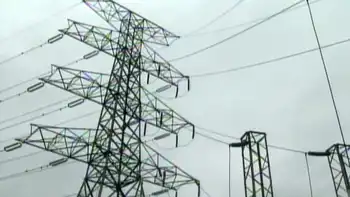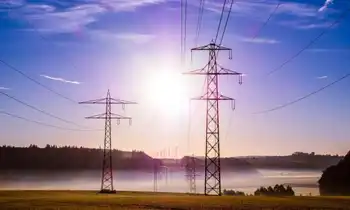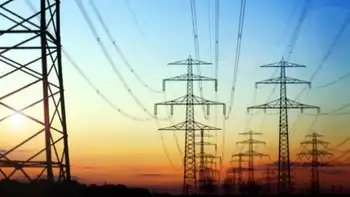Florida Utilities versus Storms
TALLAHASSEE, FLORIDA - Floridians who sweated for days without electricity after last year's hurricanes repeatedly knocked down their power lines can take some comfort in this: They are the motivating force behind several bills in this year's Legislature.
Legislation that would create a nine-member task force to study how Florida's utility lines and equipment can better withstand hurricane-force winds drew unanimous approval recently from one committee.
Senate Bill 526, sponsored by state Sen. Ron Klein, D-Boca Raton, started as a modest review of whether more power lines should be buried and whether electric companies should replace wooden poles with concrete ones.
But Klein and members of the Senate Communications and Public Utilities Committee expanded the bill to include a comprehensive review of all Florida utilities, including telephone, water, sewer, cable TV and electric.
"We want to learn how to deal with storm recoveries better, to make sure that, when there is a state of emergency, power and all the vital utility services can be restored quickly or never lost in the first place," Klein said.
The task force may be the least controversial of the utilities- related measures to be considered during the 2005 session.
A bigger lobbying fight probably awaits a request from utility companies to pay for millions of dollars in hurricane damage with long-term bonds that require special approval from the state. Utilities say the bonds would allow them to pay off their debts and rebuild their storm reserves at lower interest rates.
Utilities are supposed to recover such costs with two-year surcharges added to customers' monthly bills. But utility companies say that getting more time to pay off those costs and build up their reserves could translate into smaller monthly fees for ratepayers.
The debate over the utilities' bond proposal stalled Monday. Instead, senators moved ahead with the task force, which would present its findings to the 2006 Legislature.
Since last year's onslaught of four major hurricanes in less than seven weeks, Florida residents and dozens of municipalities have been pressuring the state's major utilities to bury more of their power lines.
Klein said the task force will study whether converting existing distribution and transmission systems would be cost effective.
Utility companies have said the cost of underground lines can range from three times to 10 times more than the cost of aboveground power lines. Power poles typically carry phone and cable lines that also would have to be buried.
Also, buried lines are susceptible to flooding, including saltwater contamination that speeds corrosion. And during a hurricane, underground lines can wind up under water, preventing crews from making quick repairs.
Related News

Lack of energy: Ottawa’s electricity consumption drops 10 per cent during pandemic
OTTAWA - Ottawa residents may be spending more time at home, but the city’s energy use has dropped during the COVID-19 pandemic.
Hydro Ottawa says there was a 10-to-11 per cent drop in electricity consumption in April, with the biggest decline in electricity usage happening early in the morning.
Statistics provided to CTV News Ottawa show average hourly energy consumption in the City of Ottawa dropped 11 per cent during weekdays, and a 10 per cent decline in electricity consumption on weekends.
The drop in energy consumption came as many businesses in Ottawa closed their doors due to the COVID-19 measures and physical…




